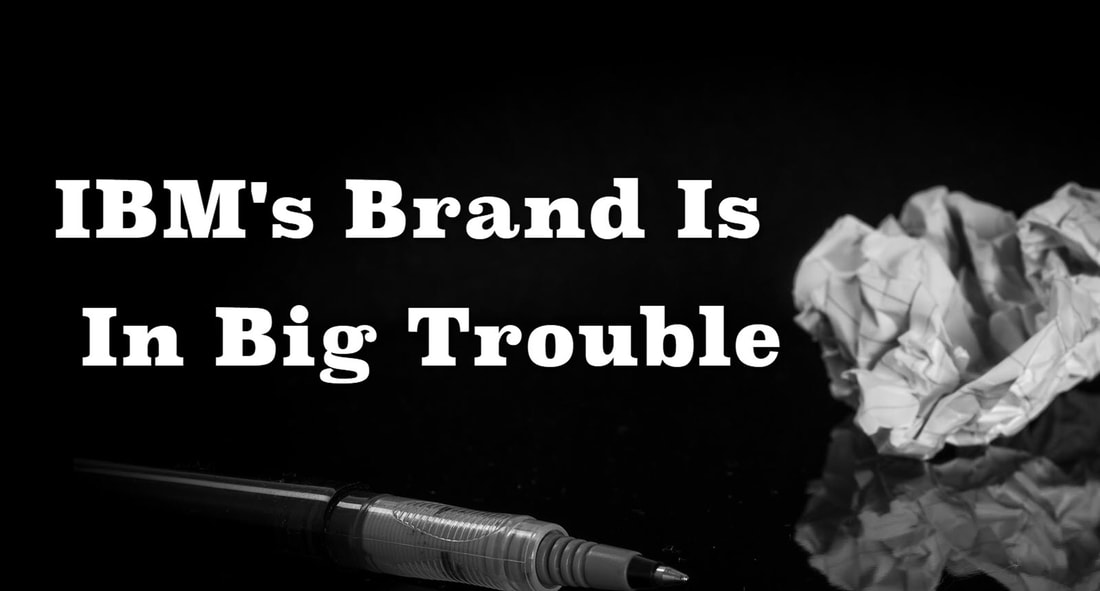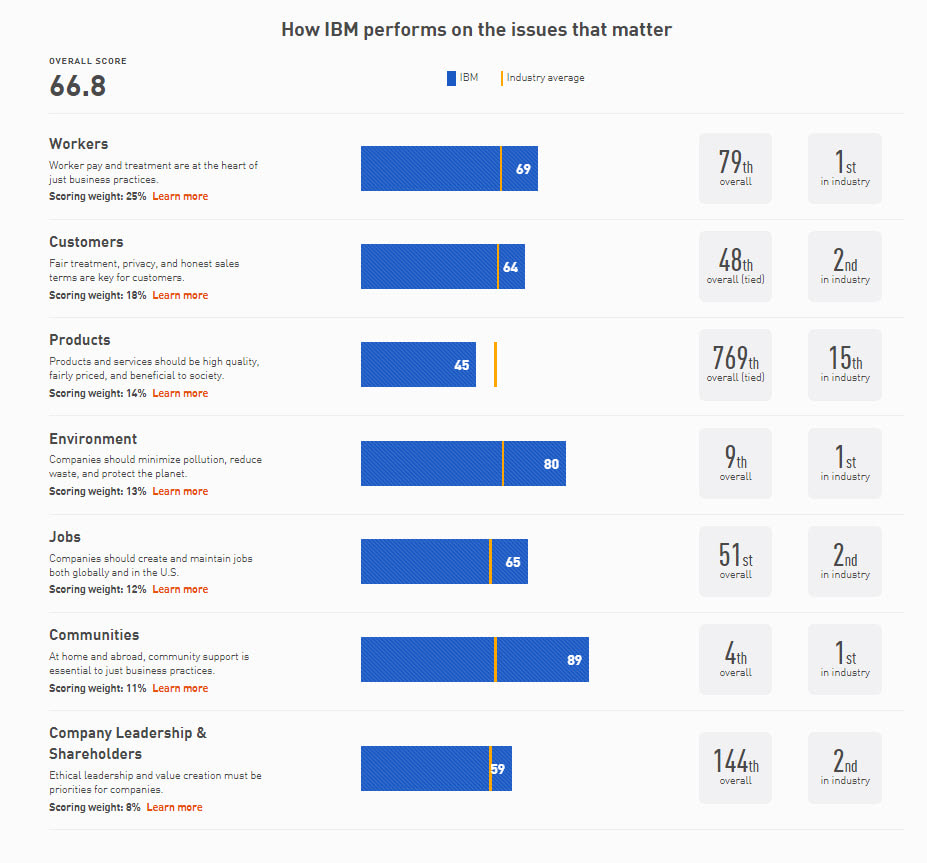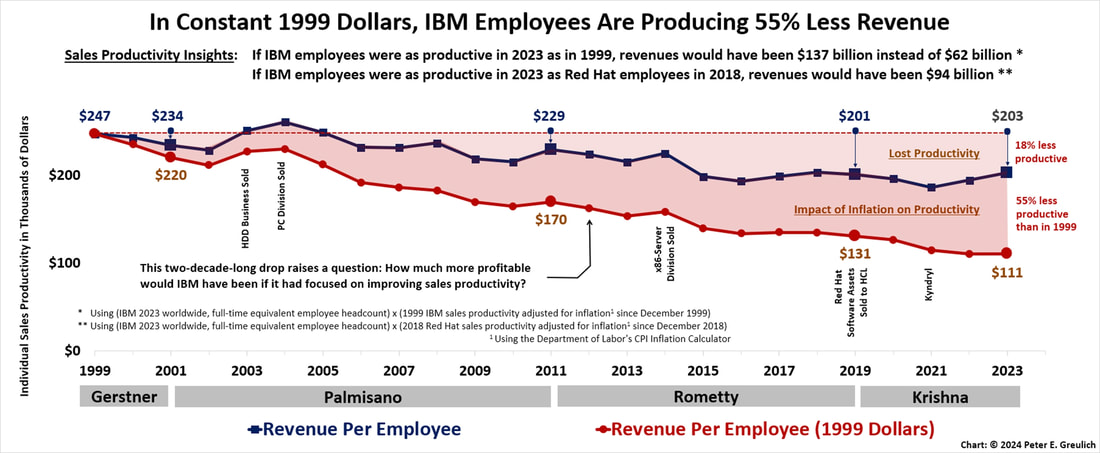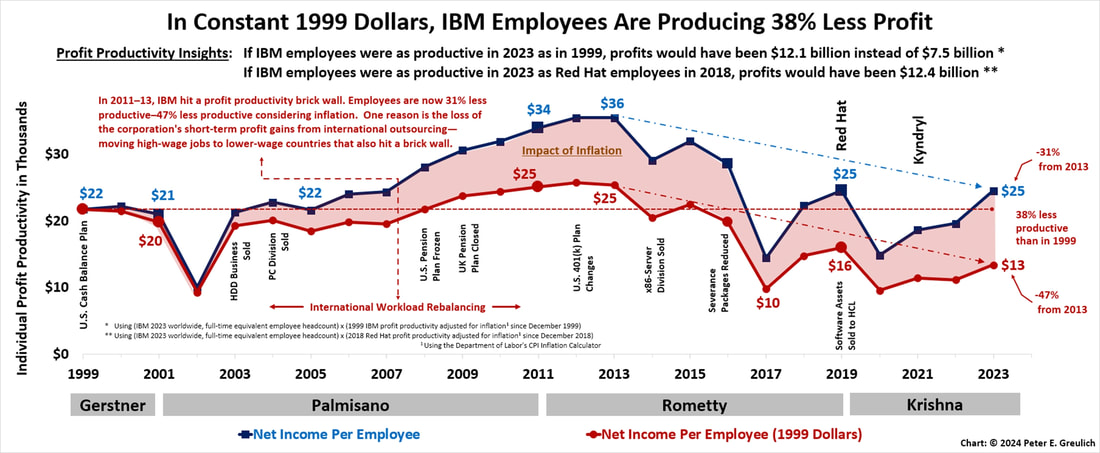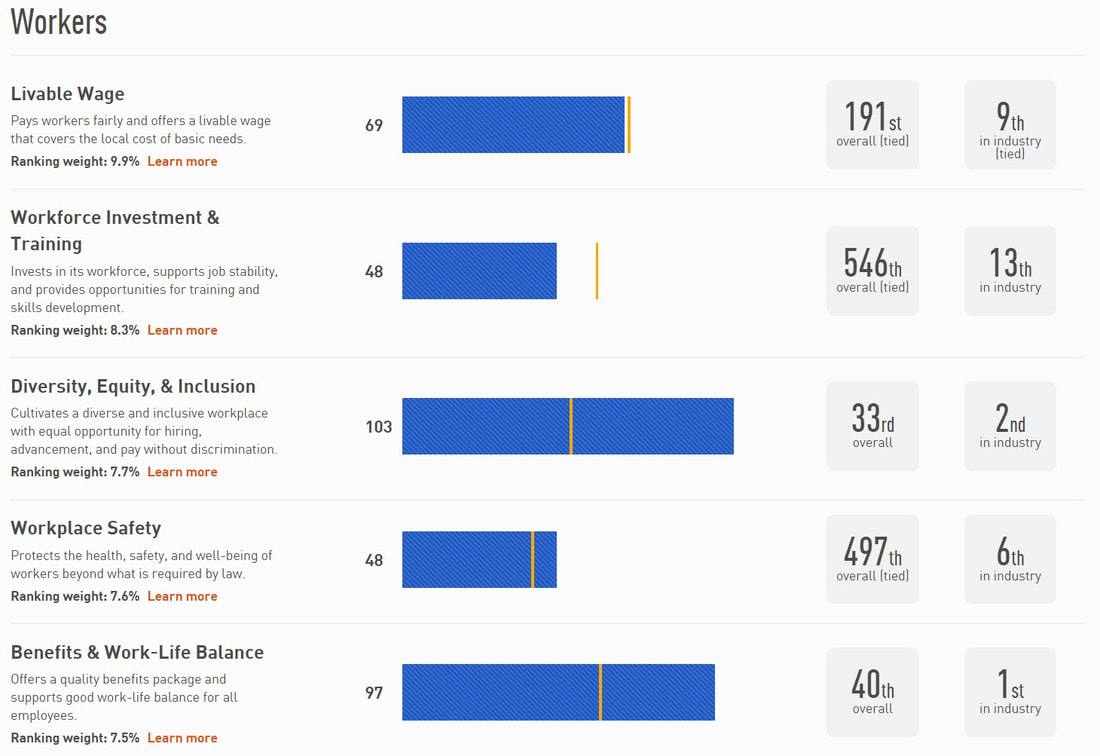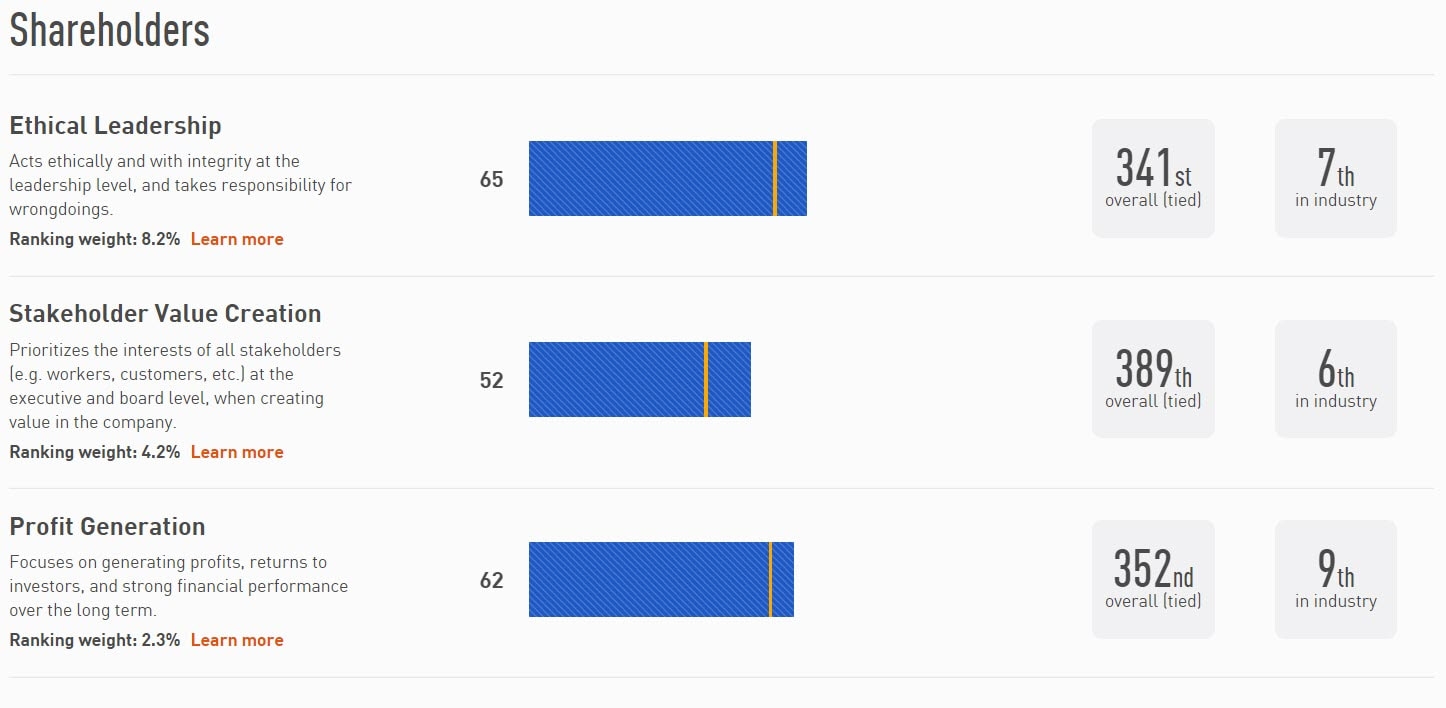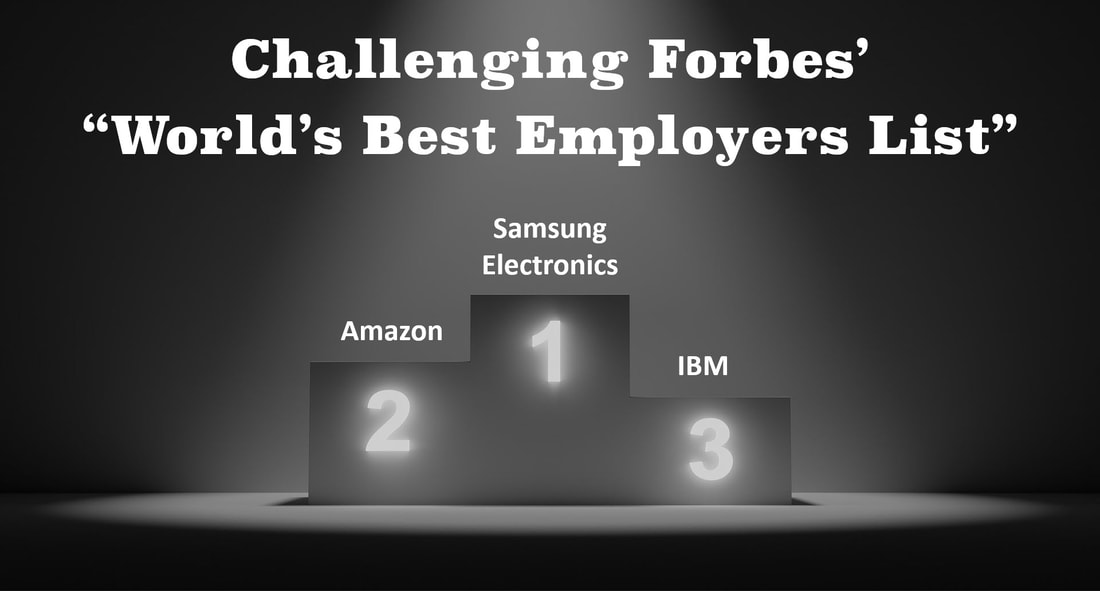If my foresight were as clear as my hindsight, I should be better off by a damned sight.
If my foresight were as clear as my hindsight, I should be better off by a damned sight.
IBM: The Next Iconic American Brand to Fail?
|
|
Date Published: July 25, 2021
Date Modified: April 25, 2025 |
After the fall of Sears, Roebuck & Company, the iconic creation of Julius Rosenwald, one has to wonder, "Which of America's great brands will be next?" Will it be IBM? In the quite negative society we live in today, many believe that when I write about IBM I am just "going with the negative flow." Too many think that it is easy to write about IBM's problems. But after thirty years living its history and another ten years studying and writing about it, I understand what carried the corporation through difficult times—its people; and it is hard writing about its current problems because I still have many good friends there. These are fantastic individuals who would be excellent employees anywhere.
These individuals care about their fellow employees and they, and those like them, are the ones holding the corporation together. This article is in their honor.
Cheers,
- Peter E.
These individuals care about their fellow employees and they, and those like them, are the ones holding the corporation together. This article is in their honor.
Cheers,
- Peter E.
Will IBM Be the Next American Brand to Fail?
- IBM's True Heroes Haven't Given Up
- Executive Policies Are Undermining IBM's Heroes
- According to Just Capital's Data, IBM's Brand Is in Big Trouble
- IBM's Overall Brand Image Is at Stake
IBM's True Heroes Haven't Given Up
This information from 2019 was published with JUST Capital's permission. No such permission has been granted to its latest data from 2024 for 2023. That information can be found here: [JUST Capital].
It can be easily presumed that IBM has not improved on these numbers as in 2019 IBM was ranked 5th in the world overall (just before Arvind Krishna took over as IBM's CEO) and in the latest 2024 world rankings, after four years of Arvind Krishna's leadership, it has fallen to 60th place. Also, IBM failed to be an "overall best" in any of the 2024 categories measured by JUST Capital: workers, communities, customers, environment, shareholders and governance.
It can be easily presumed that IBM has not improved on these numbers as in 2019 IBM was ranked 5th in the world overall (just before Arvind Krishna took over as IBM's CEO) and in the latest 2024 world rankings, after four years of Arvind Krishna's leadership, it has fallen to 60th place. Also, IBM failed to be an "overall best" in any of the 2024 categories measured by JUST Capital: workers, communities, customers, environment, shareholders and governance.
|
At the micro-level, IBM is still a top-notch organization where the best-of-the-best are battling every day—with ever longer hours and dedication—to preserve customer relationships. For JUST Capital to report in 2019 that IBM was 769th out of 890 companies in its products and services is a slap in the face of these individuals and could never be done lightly, because they are heroes. They should be recognized, supported and encouraged, but instead they live under the constant shadow of resource actions—layoffs. No wonder that sales and profit productivity are falling as shown in the following charts.
Writing their stories of success, although rewarding and supportive, would be like writing about the successful movement of a multitude of pebbles on the seashore when the real story is that an ebb tide is pulling all the pebbles out to sea and the boats will soon be stranded.
|
IBM's JUST Capital metrics for 2019.
|
When individuals of greatness leave IBM and write about what they will miss at IBM, they rarely, if ever, write that they will miss IBM's executive leadership. They write—with great emotion—about their peers who have fought the good fight with them.
Many leave because they no longer agree with IBM's business and human resource practices.
Too many are leaving because they are tired of living in fear of them.
Too many are leaving because they are tired of living in fear of them.
Executive Policies Are Undermining IBM's Heroes
What is happening at IBM is a deterioration of its overall brand: not just with its employees but with its customers, shareholders, and their shared societies. This is happening at the macro-level, which is to say it is a problem caused over the last two decades by the corner office, their direct reports, and their financial policies that are failing all of IBM's stakeholders.
I have been writing about the corporation's horrendous human relations practices since my retirement in 2011. I have written how its financial autocracy and acquisition strategy were causing its product quality and competitiveness to decline. I have written how the company has displaced turn-around leadership with jettison-now management.
I have written how IBM's leadership makes decisions that are legal but violate ethical sensibilities.
I have been writing about the corporation's horrendous human relations practices since my retirement in 2011. I have written how its financial autocracy and acquisition strategy were causing its product quality and competitiveness to decline. I have written how the company has displaced turn-around leadership with jettison-now management.
I have written how IBM's leadership makes decisions that are legal but violate ethical sensibilities.
- IBM's 21st Century Sales Productivity
The result of poor executive leadership by IBM's Chief Executive Officers is reflected in the following chart: a two-decade-long, 55% drop in sales productivity.
In 2023, instead of generating $62 billion in revenue:
In 2023, instead of generating $62 billion in revenue:
- If IBM's employees in 2023 were as productive as IBM employees in 1999, revenues would have been $137 billion instead of $62 billion, or . . .
- If IBM's employees were as productive as Red Hat employees in 2018–19—less than five years ago just before the acquisition, revenues would have been $94 billion instead of $62 billion.
- IBM's 21st Century Profit Productivity
In 2023, instead of generating $7.5 billion in net income:
- If IBM's employees in 2023 were as productive as IBM employees in 1999, profits would have been $12.1 billion, or . . .
- If IBM's employees in 2023 were as productive as Red Hat employees in 2018–19, profits would have been $12.4 billion.
It appears that workload rebalancing has run its course propping up profits. Unfortunately, when IBM's products are ranked 769th out of 890 companies, they won't give profit productivity the lift it needs anytime soon.
According to JUST Capital's Underlying Data, IBM's Brand Is in Trouble
Several underlying causes of this productivity decline are captured in JUST Capital's underlying data. This information from 2019 was published with JUST Capital's permission. No such permission has been granted to its latest data. It can be found here: [JUST Capital]. It can be easily presumed that IBM has not improved on these numbers as in 2019 IBM was ranked 5th overall worldwide and, under four years of Arvind Krishna's leadership, It has fallen to 60th place in JUST Capital's latest 2023 rankings
JUST Capital's 2019 data about IBM seems contradictory because of a disconnect between executive words and actions. Its data is third-party verification of the on-going effects of the poor human relations practices this author has been documenting for the last decade. IBM's brand markets itself on paper but the reality for shareholders, employees, customers, and their supportive societies stands in stark contrast to the marketing hype.
IBM's top executives no longer think clear, strategic thoughts, or make good, long-term, business-first, investment decisions. They have lost their ability to relate to others—especially their employees. As the following data shows, their words project one identity outward to the public, and their actions impose a different reality on those closest to the company. Studying the following 2019–21 data, a psychologist would probably diagnose the corporation as schizophrenic with a dissociative identity disorder.
IBM's top executives no longer think clear, strategic thoughts, or make good, long-term, business-first, investment decisions. They have lost their ability to relate to others—especially their employees. As the following data shows, their words project one identity outward to the public, and their actions impose a different reality on those closest to the company. Studying the following 2019–21 data, a psychologist would probably diagnose the corporation as schizophrenic with a dissociative identity disorder.
In 2019, Just Capital published some very startling data on IBM. For those that haven't worked at Big Blue, the "startling" was not in the headline. It was just another top-ten ranking for the corporation: the #5 "Most Just Corporation in the World." [which fell to #11 in 2021 and fell further to #19 in 2022.] The unexpected for these individuals would be in the data underlying the headlines that most do not have the time to analyze. IBM should be called out for its many failures revealed in the following 2019 data which is annotated in red with insights from JUST Capital's 2021 report.
Kudos to JUST Capital for making the micro-data available so this research could be performed.
Kudos to JUST Capital for making the micro-data available so this research could be performed.
- In 2019, IBM was 1st in "Commitment to Employee Respect," yet IBM was 680th in "CrowdSourced Employee Respect."
The difference between "commitment and crowdsourced" is the difference between "marketing words and documented results." These questions were removed/replaced but crowdsourcing was still used in the 2021 analysis.
Here is the IBM 2021 employee data.
- In 2019, IBM was 1st in "Follows Laws and Legislation," but IBM was 224th in "Leadership acts and communicates with integrity."
In 2021, IBM was 136th in "Commitment to Following Laws and Regulations," 742nd in "Legal Fines and Violations," and overall 341st in "Ethical Leadership." Again, a significant conflict between commitment and actual results with significant deterioration in just a few years.
- in 2019, IBM was 850th in "5-Year Risk-Adjusted Total Shareholder Return" and IBM was 287th in "5-Year Shareholder Payout Ratio." Yet, the board of directors handed out executive rewards that placed IBM as #612th in paying their "CEO fairly compared to workers."
In 2021, the CEO pay question was removed. Here is why according to JUST Capital:
Removed "Pays CEO reasonably compared to its workers and based on the company financial performance." This issue was removed because focus group participants told us what constitutes "reasonable" will vary depending on the individual company and job level, and that it is difficult to objectively render a judgment.
- As is apparent from the charts above, IBM was still a terrible performer in 2021 for shareholders: IBM was 341st in "Ethical Leadership; IBM was 389th in "Stakeholder Value Creation;" and IBM was 352nd in "Profit Generation."
There are many more data points, but let's stop here. The underlying data, to anyone that is concerned about the corporation, should be eye opening.
IBM's Overall Brand Image Is at Stake
In 2014, as a Seeking Alpha contributor, I gave Virginia M. Rometty the benefit of the doubt. I probably shouldn't have, but it seems that every chief executive should have time to make a business their own. Was three years enough time? Some thought so. Although she didn't invent the business and human resource practices she inherited, she condoned and continued them rather than reversing them. Louis V. Gerstner initiated them, and Samuel J. Palmisano only took Lou's practices to their logical extreme. The 2019 JUST Capital report documented Ginni's final result: IBM was 144th for prioritizing "ethical leadership" and "value creation."
|
We used to say in sales, "Our customers' perceptions are the reality we live within." This was Virginia M. Rometty's reality: IBM's brand is in big trouble. It is now Arvind Krishna's problem. It will take a change of leadership and strategy in 2021–22 to save one of America's most-iconic brands. Otherwise analysts and shareholders, executives and employees, customers and business partners, should expect IBM's sales and profit productivity to continue to decline.
Ginni, left at just the right time. Arvind Krishna has a tough hill to climb. Unfortunately, after evaluating his first year's results, it appears he may not be up to the task: Arvind Krishna's Performance Home Page.
Cheers, - Peter E. |
Did the Forbes' "World's Best Employers List" really dig deep enough into IBM to make this call?
|
